Invited speakers:
John Glass, USA (talk on Wednesday 17 April)
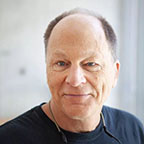
John Glass is a Professor of Synthetic Biology and the Director of the La Jolla campus of the J. Craig Venter Institute (JCVI). At the JCVI Glass uses his core expertise in synthesizing viral, bacterial and eukaryotic chromosomes and genomes and installing those synthetic nucleic acids in viruses and cells in a wide variety of projects. These include building viruses to improve influenza vaccine production, making synthetic human artificial chromosomes, working to develop a skin microbiome-based approach for better treatment of diabetes, and most importantly, building a minimal bacterial cell that is being widely used to investigate the first principles of cellular life. Before joining the JCVI in 2003, Glass worked five years at the pharmaceutical company Eli Lilly, where he helped develop the first drug for hepatitis C virus (Incivek) and also hunted for anti-bacterial drugs using genomics-based approaches. Glass earned his doctorate researching vesicular stomatitis virus at the University of North Carolina at Chapel Hill. He did postdocs at the University of Alabama at Birmingham. One working to use polio virus as a recombinant vaccine vector and the other studying the pathology and genomics atypical bacteria called mycoplasmas. Read his full biography on the JCVI website
Geoffrey Otim, SynBio Africa (talk on Friday 19 April)

Geoffrey Otim is a distinguished life scientist dedicated to advancing synthetic biology, biosecurity, and pandemic preparedness in Africa. As the visionary founder and CEO of SynBio Africa, he has spearheaded groundbreaking initiatives that have positioned the organization as a pioneering force for innovation and collaboration on the continent. Notably, Geoffrey established the first International Genetically Engineered Machine (iGEM) competition team from East Africa, showcasing his commitment to nurturing talent and driving excellence in synthetic biology. He has also organized international synthetic biology and biosecurity conferences in Africa, underscoring his dedication to advancing scientific discourse and addressing global challenges. Geoffrey's visionary leadership extends to initiatives such as the SynBio Africa Global Catastrophic Biological Risks Initiative, focusing on pandemic preparedness tailored to the African context. He serves on various international expert groups and has been recognized with prestigious awards, including the SynBioBeta Impact Award in 2023. With diverse research interests spanning cryptic microbial secondary metabolites, gut microbiome engineering, and biofuel production, Geoffrey continues to make significant contributions to the field of synthetic biology. Read his full biography on the SynBioBeta website and the Synbio Africa website.
Stephen Mann, UK (talk on Thursday 18 April)
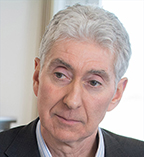
Stephen Mann is Professor of Chemistry, co-Director of the Max Planck-Bristol Centre for Minimal Biology, Director of the Centre for Organized Matter Chemistry and Director of the Centre for Protolife Research at the University of Bristol, UK.
He is a founder of biomimetic materials chemistry and is distinguished for contributions to biomineralization, bioinspired materials chemistry and protocell research.
His research interests are focused on the chemical synthesis, characterization and emergence of complex forms of organized matter, including models of protocell assembly. For more information about his research group, visit the Mann Group website.
Keynote speakers
James Pelletier, Spain (talk on Wednesday 17 April)
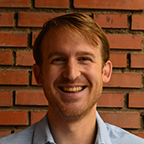
James Pelletier is a postdoc at the National Centre for Biotechnology (CNB) in Madrid, Spain. He was a graduate student in the Department of Physics at MIT. While interested in biophysics, his work involved reconstitution of biological systems – controlled disassembly of cells, and reassembly of cellular subsystems – to learn how cellular properties emerge from physical interactions, and to develop interfaces between biology and microscale technologies. In addition, James researched cytoskeletal networks in cytoplasmic extract, restructured in microfluidic devices, with Professor Timothy Mitchison (Department of Systems Biology at Harvard Medical School), with Professor Nikta Fakhri (Department of Physics at MIT), and with Professor Neil Gershenfeld (MIT Center for Bits and Atoms). In addition, he collaborated with John Glass (J. Craig Venter Institute) and with Elizabeth Strychalski (National Institute of Standard and Technology), for growing and transplanting the genomes of mycoplasma bacteria with minimal synthetic genomes. Read more
James Sáenz, Germany (talk on Friday 19 April)
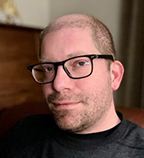
James Sáenz is Group Leader at BCube, the Center For Molecular Bioengineering at Dresden University of Technology in Germany. His group focuses on understanding how lipids contribute to membrane function and organismal fitness from synthetic protocells to microorganisms. The group is interested in topics ranging from how membranes contributed to the origin of cellular life, to identifying membrane-based targets for antibiotic resistance. One of James's central aims is to mine a repertoire of biological innovations from the simplest microorganisms to elucidate the minimal set of principles and components required to assemble a robust and autonomous synthetic cell membrane. Read more
Yutetsu Kuruma, Japan (talk on Thursday 18 April)
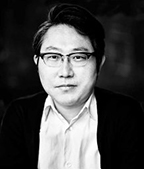
Yutetsu Kuruma is Project Associate Professor at the Earth-Life Science Institute, Tokyo Institute of Technology in Japan. His research focus is to understand how non-living matters construct living organism, by constructing artificial (minimal) cell in synthetic biological approach. Read more about Yutetsu's research on his website.
Claudia Contini, UK (talk on Wednesday 17 April)
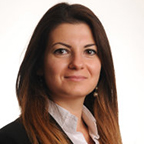
Claudia Contini is currently a BBSRC Discovery Fellow and Lecturer in the Department of Life Sciences, at Imperial College London, UK. Her research interests lie in the field of bottom-up synthetic biology with a focus on the design of synthetic life-like systems that mimic biological properties and functions for biotechnological and biomedical applications. Claudia is an Executive and Steering Committee Member of fabriCELL and Director of the Association of Italian Scientists in the UK (AISUK). Read more
Cheemeng Tan, USA (talk on Thursday 18 April)
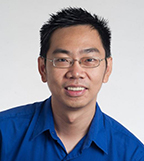
Cheemeng Tan is Associate Professor at the University of California Davis, USA. He aims to understand the operating principles of cells and to apply them to biomedical applications. The Tan Lab uses a holistic approach, which integrates synthetic biology and systems biology, to engineer synthetic vesicles, cell-free systems, and synthetic cells. The lab’s work will enable the high-throughput engineering of synthetic vesicles and cells for broad biotechnological applications. Read more
Matthew Good, USA (talk on Friday 19 April)
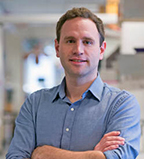
Matthew Good is Associate Professor of Cell and Developmental Biology at the University of Pennsylvania, USA. His lab is interested in the unique cell biology of early embryo development. Matthew and his team study how the zygotic genome awakens and the assembly of membraneless organelles. They are also interested in how cells regulate their dimensions. Read more
Zhanar Abil, USA (talk on Thursday 18 April)
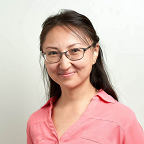
Zhanar Abil is Assistant Professor at the University of Florida, USA. Her lab, the Abil Lab, focuses on in vitro reconstruction of the transcription and translation apparatus, minimizing the in vitro protein decoding apparatus and coupling energy regeneration to in vitro growth and replication. Read more











